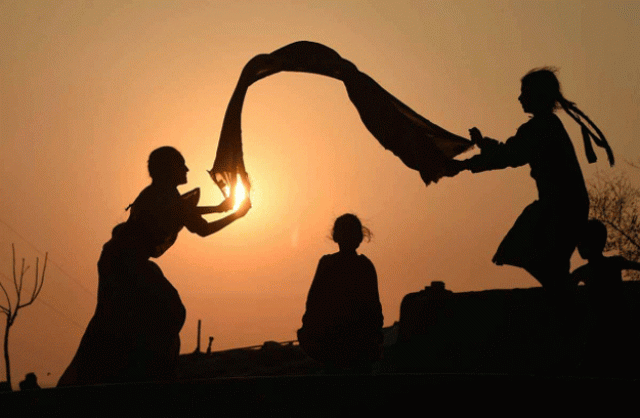Training workshop: Helping police enforce laws protecting rights of children
The training aimed at sensitising police about laws pertaining to child marriages

The training aimed at sensitising police about laws pertaining to child marriages. PHOTO: AFP
The Democratic Commission for Human Development (DCHD) and Save the Children organised a series of six training workshops aimed at sensitising and raising awareness among policemen regarding child marriage and the national and international legal and human rights frameworks.
The workshops were held as part of DCHD’s campaign against child marriages in the Punjab. As many as 180 police officials were trained in various aspects of human rights and the role and responsibility of the police in implementing laws safeguarding the rights of children.
Zafar Javed Malik, chief law instructor of the junior school at the police training college, and Arshad Mehmood of the DCHD, facilitated various sessions during the training.
The participants studied a comparative report on laws on child marriages in Sindh and in the Punjab. They were given detailed lectures on human rights and how Pakistan was obligated to enact laws in accordance with the UN Convention on Rights of the Child. Dr Irshad Danish, a child rights advocacy expert at Save the Children Pakistan, briefed participants about basic concepts surrounding child rights and highlighted the main causes and impact of under-age marriages. He explained how various stakeholders at grassroots and the police could play a major role in combating discriminatory customary practices.
Police Training College Commandant Fiaz Ahmad Dev congratulated the police officials on completing the training and said that he hoped that the trainees would practice all they had learned in the training. He urged civil society organisations to join hands with the police to ensure effective implementation of laws to protect child rights and to bridge the gap between the public and police.
Tanveer Jahan said police was a major stake holder in implementing such laws. She thanked the police training school for providing them the opportunity to interact with each other.
Published in The Express Tribune, May 12th, 2015.



















COMMENTS
Comments are moderated and generally will be posted if they are on-topic and not abusive.
For more information, please see our Comments FAQ